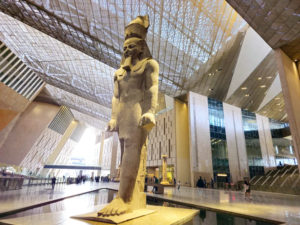The newly formed Asheville-Buncombe Community Reparations Commission passed its first recommendation Tuesday night. The proposal by former city council member Keith Young, who has played a major role in the reparations effort, asks that both the City and County place money in their annual budget in perpetuity for reparations.
“I’m just going to say this as the only person sitting around this table that has actually served in local government for the last five years – and forever at this table,” Young told fellow commission members. “I know a little bit about the budgets. I know a little bit about the money. I know where it’s at and I know why we’re here. And if you got money, you got half a plan. And what they took from us was our generational wealth and our money.”
The motion passed unanimously and will be presented to officials. Both governments have committed to funding reparations. Young said it is crucial to secure funds now to ensure the commission’s work to address inequities in education, healthcare, housing and other areas – is supported in the future.
“Everybody around this table represents impact focus areas, right? You got justice, you got housing, you got education, you got healthcare. You got all these different things. If you even believe that you’re going to make an inkling of change or help somebody’s life, what do you think it’s going to take?
“Money,” some members of the group responded.
“It’s going to take money,” said Young. But you cannot be scared to ask for the money. Because if you wait two years for when this commission is up and say, ‘Now give us the money,’ and you may have six new people on council that don’t care about what we’re talking about, or on county commission that don’t care about what we’re talking about. You have to ask for the money right now. They are in the budget process right now. “
The 25-member commission was formed after local leaders adopted a resolution in 2020 to repair damage caused by systemic racism. Young who was a member of the Asheville City Council at the time, helped craft the resolution. “The blood capital that we have banked to spend today to fight for significant change came predominantly not from our allies, but from black men, women, and children who died,” said Young as the resolution was introduced.
More on the Commission:
According to the Asheville City website: The Community Reparations Commission is charged with developing recommendations to be presented to the City Council and County Commission to repair the harm done by decades of racial discrimination and systemic oppression against Black Asheville residents. The reparations process in Asheville will focus on five impact areas which include housing, economic development, health, education, and criminal justice. The Community Reparations Commission members will contribute 5-10 hours per month, possibly up to 18 to 24 months.




